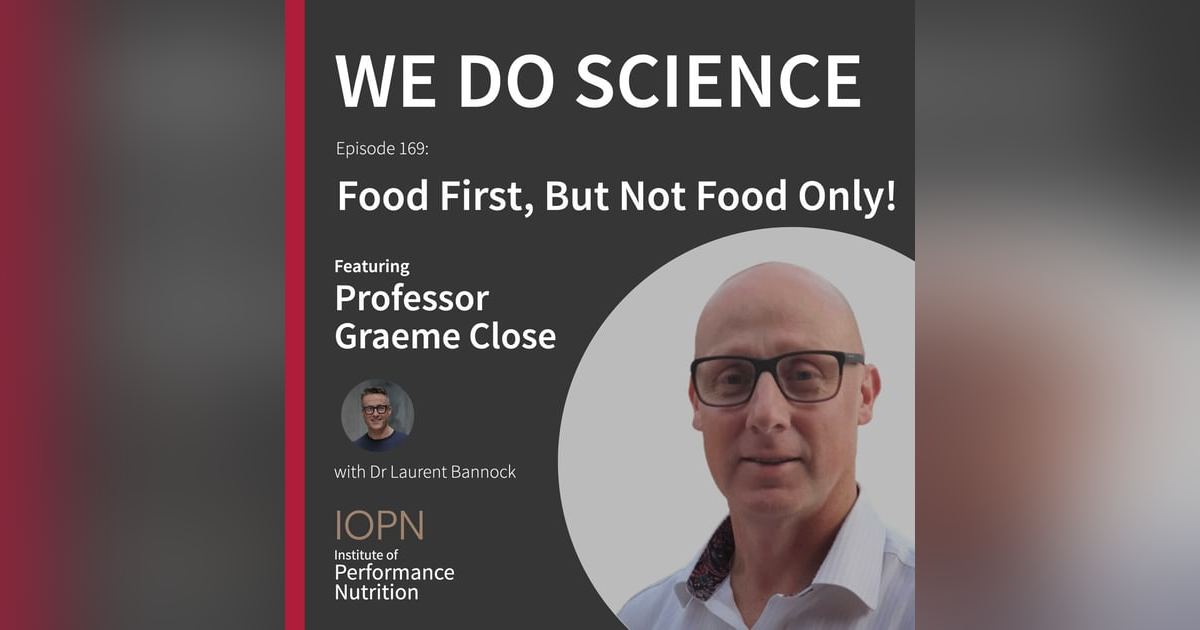Feb. 23, 2022
"Food First, But Not Food Only" with Professor Graeme Close

Episode 169 of the Institute of Performance Nutrition's "We Do Science" podcast! In this episode, I (Laurent Bannock) discuss "Food First, But Not Food Only" with Professor Graeme Close PhD (Liverpool John Moores University, UK).
Discussion Topics Include:
- Defining the concept of "Food First"
- Why a food first approach is important in performance and health focussed nutrition
- Why context matters
- The 'food first not food only' approach to sport nutrition
- Example situations where performance may be compromised with a strict food only approach
- Example situations where immune health may be compromised with a strict food only approach
- Guidance on how best to deliver a ‘food first, but not always a food only’ sport nutrition strategy in a safe and evidence-based manner
Podcast Episode Transcript: Download PDF Copy
Key Paper(s) Discussed / Referred to:
- ‘Food First’ but not always ‘Food Only’: Recommendationsfor using dietary supplements in sport (accepted for publication, link to be provided when available soon)
Related Podcast Episodes:
- # 163: - "Body composition methods in applied sport practice" with Prof Graeme Close and Prof Kevin Tipton
- #111 - "Paper to Podium: Translating Sports Nutrition Research" with Professor Graeme Close
Check out our other podcasts, publications, events, and professional education programs for current and aspiring sports nutritionists at www.TheIOPN.com and follow our social media outputs via @TheIOPN







